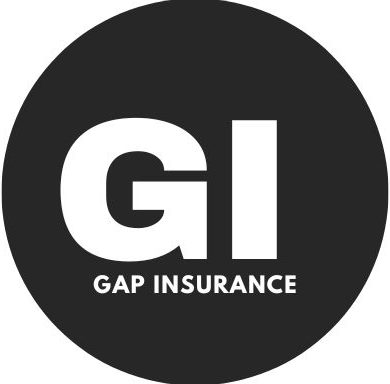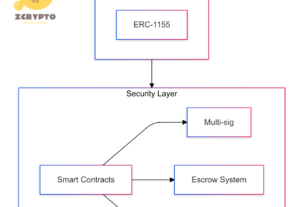What is the 3(c)(7) Exemption?
The 3(c)(7) exemption allows private investment companies to sidestep certain SEC regulations, providing a more streamlined operational environment. To qualify for this exemption, several key criteria must be met. First, all investors in the fund must be qualified purchasers, which typically includes individuals with at least $5 million in investments or entities with $25 million in investments. Additionally, the fund must not have any plans to make an initial public offering (IPO). This restriction ensures that these funds remain private and do not enter the public market.
- Unlock Stable Returns: What Are Blue-Chip Stocks and Why You Should Invest
- How the Average Cost Method Simplifies Inventory Valuation and Boosts Financial Accuracy
- What is NFT Marketplace? – ZCrypto
- Databricks nears 9.5 billion mega-investment
- Understanding Black Swan Events: How to Navigate Unpredictable Market Shocks in Finance and Investment
Key Qualifications for 3(c)(7) Exemption
Investor Requirements
For a fund to qualify under the 3(c)(7) exemption, all of its investors must be qualified purchasers. This means that individuals must have at least $5 million in investments, while entities need to have $25 million in investments. This stringent requirement ensures that only sophisticated investors who can understand and bear the risks of private investments are involved.
Bạn đang xem: 3(c)(7) Exemption: A Comprehensive Guide to Qualifications and Benefits for Private Investment Funds
IPO Restriction
Another critical qualification is that the fund cannot plan to make an initial public offering (IPO). This ensures that these private funds remain outside the public market and do not subject themselves to the extensive regulatory requirements associated with public offerings.
Beneficial Owners
Under the 3(c)(7) exemption, a fund can have up to 1,999 beneficial owners before it would be required to register under the Securities Exchange Act of 1934. This allows for a larger number of investors compared to other exemptions without triggering additional registration requirements.
Benefits of the 3(c)(7) Exemption
Regulatory Relief
One of the most significant benefits of the 3(c)(7) exemption is regulatory relief. Funds operating under this exemption are exempt from SEC registration and ongoing disclosure requirements, including the issuance of a prospectus. This reduces the administrative burden and costs associated with compliance.
Investment Flexibility
Xem thêm : Understanding the CAPE Ratio: A Comprehensive Guide to Valuing the Stock Market
The 3(c)(7) exemption also offers investment flexibility. Unlike publicly traded funds, these private funds can use tools like leverage and derivatives, which can enhance their investment strategies and potential returns.
Attracting High-Net-Worth Investors
The ability to attract sophisticated investors is another benefit. Since all investors must be qualified purchasers, these funds can attract high-net-worth individuals who understand and can bear the risks associated with private investments.
Comparison with 3(c)(1) Exemption
Investor Limits
A key difference between the 3(c)(1) and 3(c)(7) exemptions lies in their investor limits. While 3(c)(1) funds are limited to 100 accredited investors, 3(c)(7) funds have no cap on the number of qualified purchasers, up to a maximum of 1,999 beneficial owners.
Investor Type
The type of investor also differs significantly. For 3(c)(1) funds, investors must be accredited investors, whereas for 3(c)(7) funds, they must be qualified purchasers. This distinction reflects the higher financial sophistication required for 3(c)(7) funds.
Operational Structure
The operational structure and compliance burdens also vary between these two exemptions. 3(c)(7) funds generally have fewer compliance requirements compared to 3(c)(1) funds due to their larger investor base and more stringent investor qualifications.
Compliance and Regulatory Considerations
Maintenance of Compliance
Xem thêm : Boosting Financial Success: The Power and Strategies of Brand Awareness in Finance and Investment
Maintaining compliance with the 3(c)(7) rules is crucial to avoid SEC enforcement actions and litigation. Fund managers must ensure that all investors meet the qualified purchaser criteria and that no plans for an IPO exist.
Regulatory Oversight
Private funds under the 3(c)(7) exemption are subject to different levels of oversight compared to public funds. While they enjoy regulatory relief in many areas, they still fall under certain regulatory scrutiny to protect investor interests.
Risks and Advantages of Private Funds Under 3(c)(7)
Potential for Higher Returns
Private funds operating under the 3(c)(7) exemption often offer the potential for higher returns compared to public funds. This is due to their ability to use more aggressive investment strategies and tools like leverage and derivatives.
Portfolio Diversification
These funds can also provide portfolio diversification due to their longer investment horizons and different risk profiles. This can be particularly beneficial for investors seeking to spread their risk across various asset classes.
Limited Liquidity and Transparency
However, there are risks associated with private funds under the 3(c)(7) exemption. These include limited liquidity, longer return timelines, and limited transparency compared to public funds. Investors need to be aware of these risks before committing their capital.
Nguồn: https://gapinsurance.click
Danh mục: Blog




